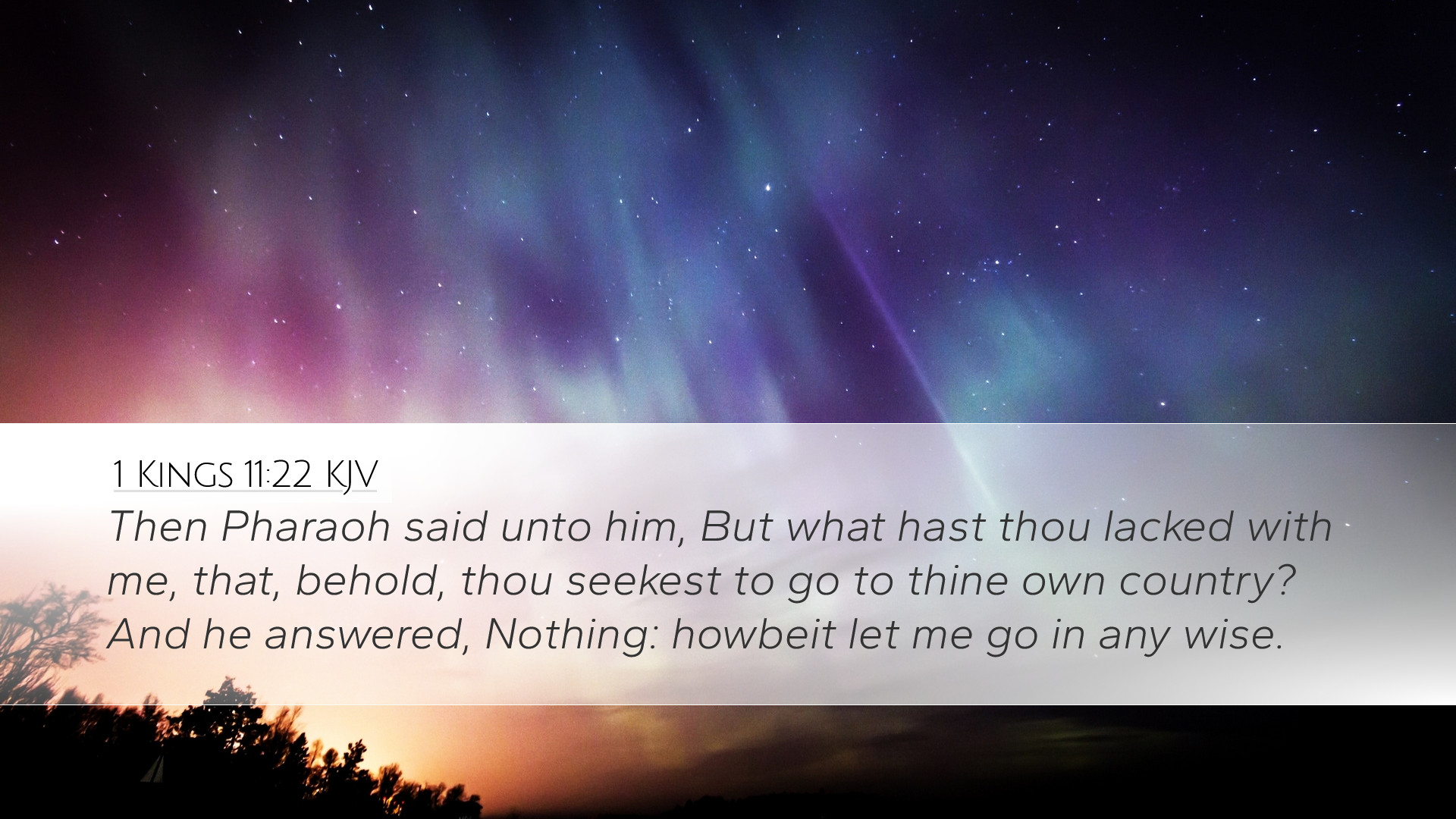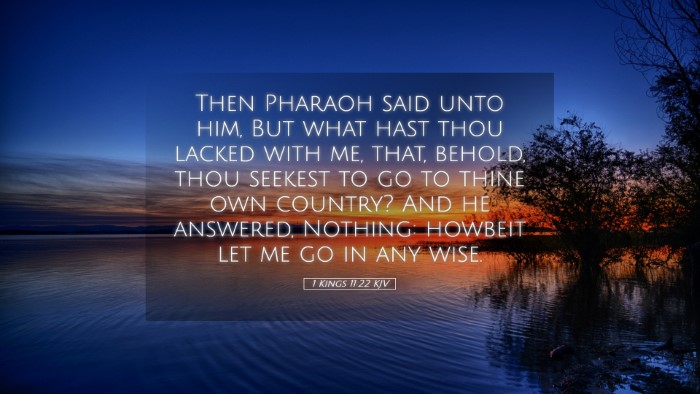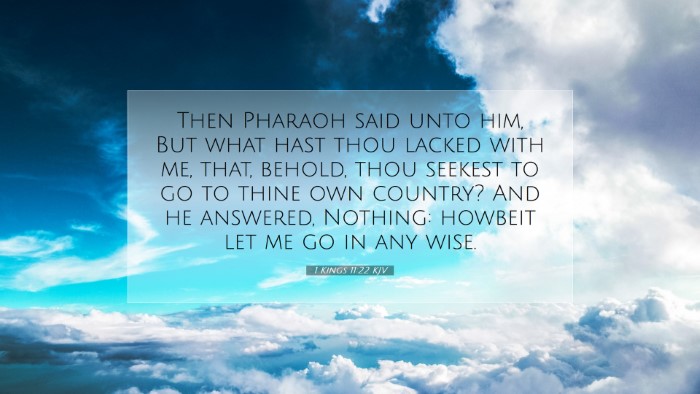Commentary on 1 Kings 11:22
Verse: "But the prophet said to Jeroboam, 'Take for yourself ten pieces, for thus says the Lord, the God of Israel: “Behold, I am about to tear the kingdom from the hand of Solomon and will give you ten tribes.'"
Introduction
This verse marks a significant juncture in the history of Israel, illustrating the transfer of power and divine sovereignty over the nations. It informs us of God’s judgment upon Solomon for his idolatry and emphasizes the indivisible connection between leadership and divine favor.
Contextual Analysis
The backdrop of this passage is vital for understanding its implications. After a period of unparalleled prosperity under King Solomon, his later years were marred by disobedience and moral decay. Solomon's alliances through marriage with foreign nations led him into idolatry, prompting God's displeasure.
Matthew Henry's Insights
According to Matthew Henry, the prophecy directed at Jeroboam serves as an example of God's justice in the face of human unfaithfulness. He notes that God’s withdrawal of the kingdom from Solomon reflects His commitment to holiness and the covenant He made with Israel.
- Disobedience Leads to Judgment: Henry emphasizes that Solomon's turning away from God set a precedent that affects not only him but the entire nation.
- Divine Choice: Jeroboam’s selection as a leader signifies God's sovereignty, showing that, despite human rebellion, the Lord can raise and depose rulers at will.
Albert Barnes' Commentary
Albert Barnes comments on the significance of the number of tribes given to Jeroboam. The division of the kingdom into ten tribes highlights the seriousness of Solomon's infractions. Barnes elucidates that this act was not merely punitive but strategic, as God had a plan to restore His people.
- The Sovereignty of God: Barnes underscores that God’s choice of Jeroboam was rooted in divine purpose, highlighting the element of grace amidst judgment.
- The Effect on Israel: The division resulted in a lasting impact on the nation, leading to the eventual split into two kingdoms and altering the course of Biblical history.
Adam Clarke's Perspective
Adam Clarke offers further examination of Jeroboam's character. He argues that Jeroboam's appointment was not due to his merit but rather to God’s providential plan. This indicates the multifaceted nature of leadership where both human character and divine will intersect.
- Human Responsibility: Clarke highlights the tension between divine sovereignty and human choice, emphasizing that while God orchestrates events, human decisions still have real consequences.
- Prophecies Fulfilled: He also connects this event to the broader prophetic narrative, reaffirming that God consistently works through prophets to communicate His will to His people.
Theological Implications
This verse’s implications extend beyond historical narrative, facilitating theological reflection on the nature of God’s governance over human affairs.
- Judgment and Restoration: The dual themes of judgment and grace are prevalent; God’s judgment on Solomon serves as a call to repentance for all leaders, while also revealing His willingness to restore and redeem through chosen instruments.
- Leadership and Accountability: The verse underscores the reality that leaders are accountable for their actions, particularly concerning fidelity to God’s commands.
Homiletical Applications
There are numerous applications for pastors and church leaders drawn from this verse. Consider the following:
- Encouragement for Leaders: Remind leaders that their authority is granted by God and can be revoked if they stray from His commandments.
- Call to Faithfulness: Encourage congregations to remain vigilant in their spiritual lives, avoiding the pitfalls of idolatry reflected in Solomon’s reign.
- God’s Sovereignty in History: Teach about the overarching theme of God’s sovereignty in the affairs of nations and His authority to raise leaders for His purpose.
Conclusion
In summary, 1 Kings 11:22 is a profound reminder of God’s justice, mercy, and sovereignty. It serves not only as a historical lesson but also as a rich source for theological reflection on leadership, accountability, and divine providence.


